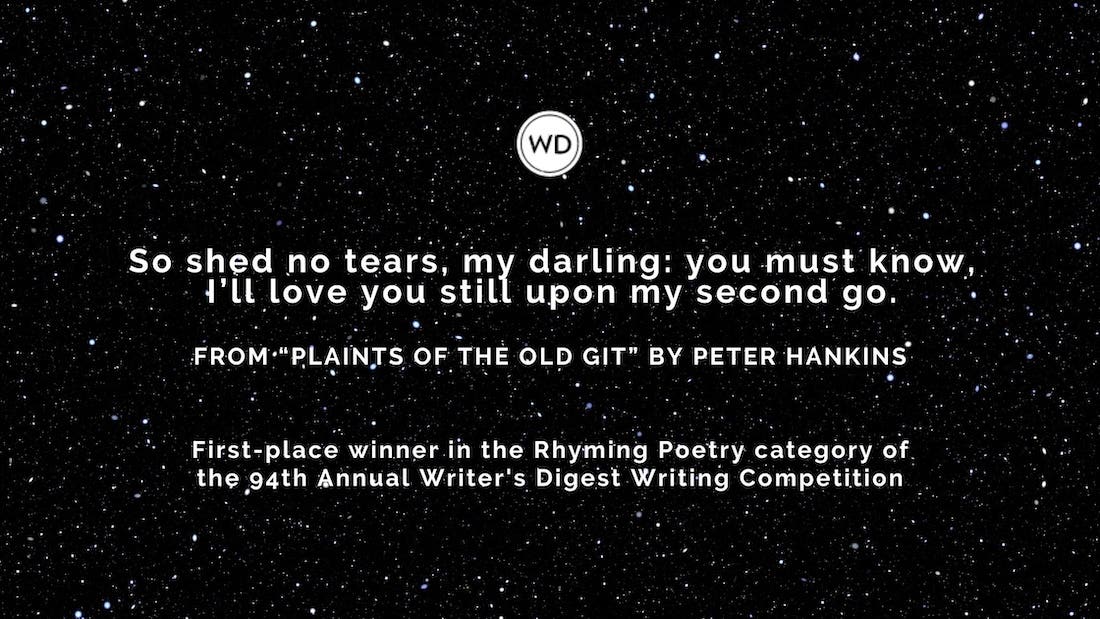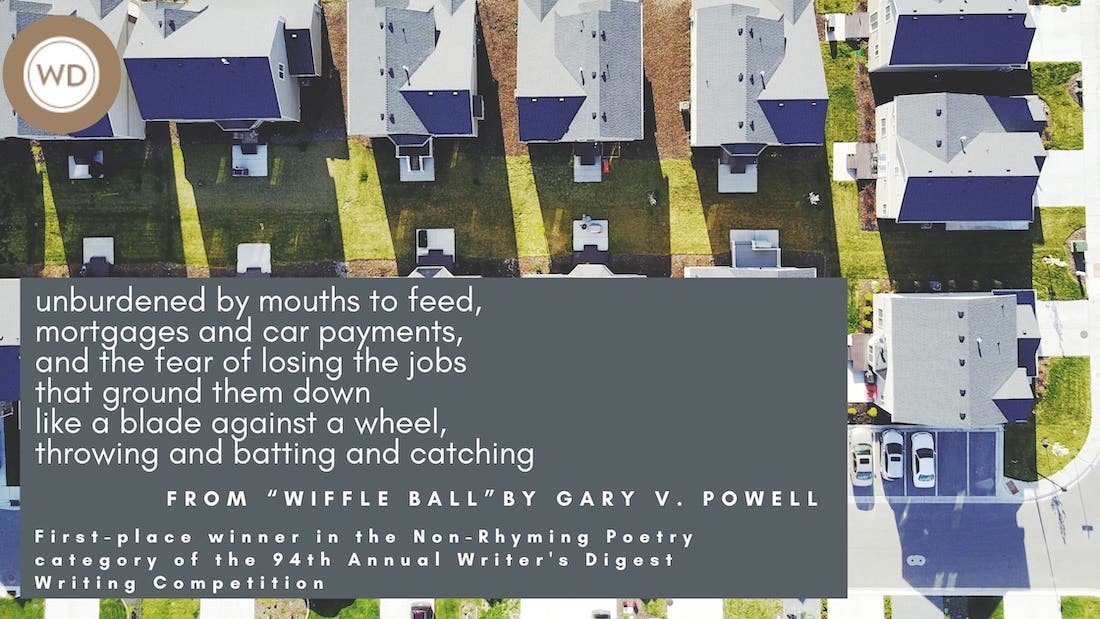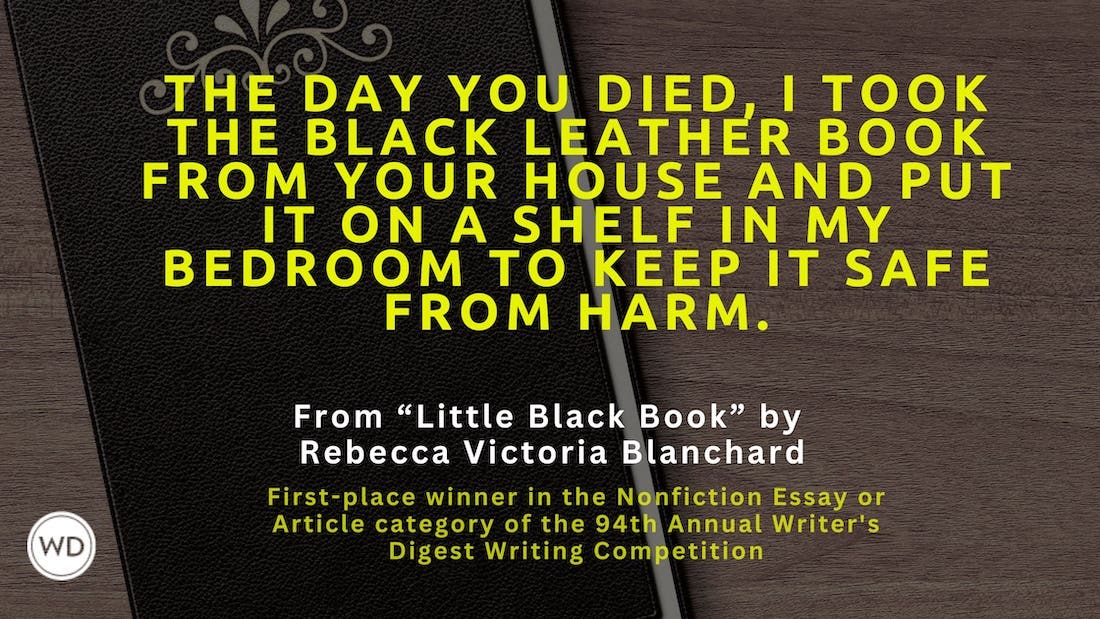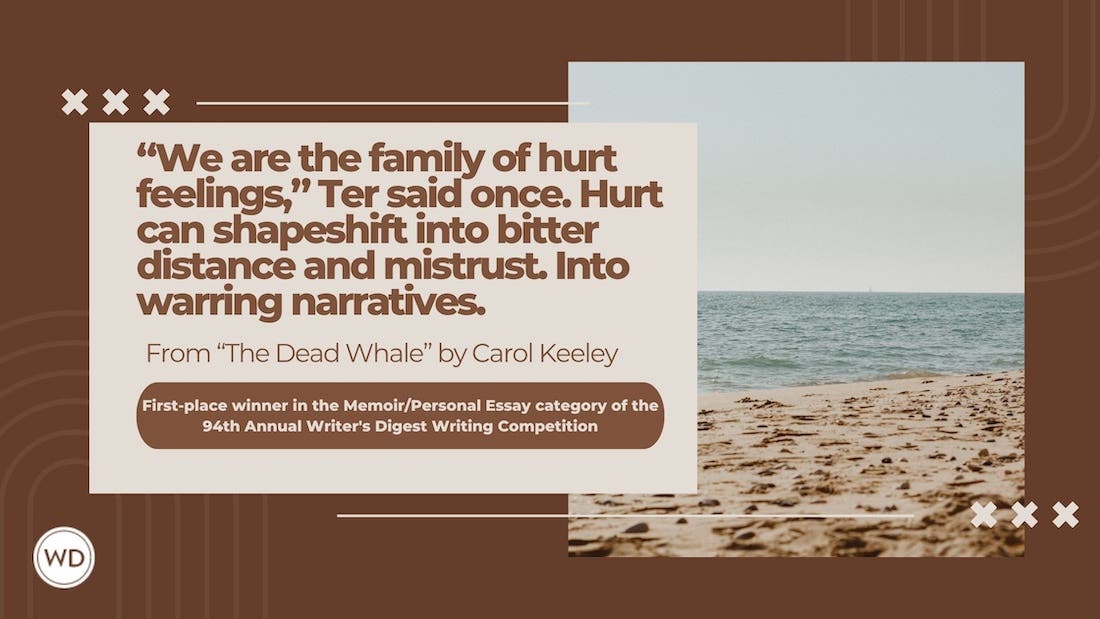Writer’s Digest 88th Annual Competition Winner Profile: Jerry Slaff
The 88th Annual Writer’s Digest Writing Competition Grand Prize winner shares his playwriting and plotting secrets.
Congratulations to Jerry Slaff, Grand Prize winner of the 88th Annual Writer’s Digest Writing Competition! His play, Lies, stood out among nearly 7,000 total entries to the competition. View the complete list of winners and honorable mentions here.
In this winner profile, Slaff shares his playwriting and plotting secrets.
Are you in it to win it? Enter the 89th Annual WD Writing Competition.
As a playwright, Jerry Slaff credits good structure as the most important factor in a quality play. After studying playwriting at Brooklyn College, Slaff thanks his writing professor every day for putting such an emphasis on structure. “Without a good structure—this is the same for playwriting as it is for novels, short stories, etc.—you’re just putting words on the page to no effect and no goal,” Slaff says.
One of his favorite structural setups is the two-character play, as he likes the opportunity to explore the characters in a claustrophobic setting. “I like that dance between two characters who don’t know much about each other trying to find out about each other,” he says.
His most recent play that follows this setup, Lies, is the Grand Prize winner of the 88th Annual Writer’s Digest Annual Writing Competition. His winnings include $5,000, a trip to the Writer’s Digest Annual Conference in New York City, and other prizes.
Lies is set in a New Jersey federal prison and follows Benny, a young, inexperienced Jewish American lawyer, as he gets to know Lorelei, an American woman who is in prison for treason. Lorelei was charged with treason for working as an Axis radio propagandist in Germany during World War II. Benny is assigned to represent Lorelei during her upcoming parole hearing and wants to prove his chops as a lawyer by getting her out. However, Lorelei has committed crimes that Benny has yet to find out about and doesn’t want to walk free.
Lorelei’s character is inspired by the American women known as “Axis Sallys” who were employed by Nazi Germany to spread war propaganda to American troops via radio programs. “I wanted to investigate a character who could tell lies when the truth is staring them in their face,” Slaff says. “When they could just look at a dog and say, ‘What a beautiful cat!’” He began to think about whom the greatest liar of the past 100 years of history was and learned about the Axis Sallys from an NPR broadcast.
During the day, Slaff works as a public affairs officer for National Oceanic and Atmospheric Administration (NOAA) in the Washington, D.C. area. He says that because his work is half a writing job, it keeps him limber for playwriting. In fact, Slaff is limber enough to keep up his goal of writing one full-length play per year. Lies is his fifth play. The play he wrote the year before, Personal Histories, was an honorable mention in last year’s WD Annual Writing Competition.
Slaff spends about half of his writing time story editing and seeing where the play is going as he writes. “I don’t work it out from A to Z. I work it out from A to R, and often don’t know where it’s going to end up. But I have a vague notion and I’m not sure how I’m going to get there, but I know the signposts on the way. I just don’t know the connections.”
Winner Spotlight Q&A: Jerry Slaff
What other factors make a good play?
The greatest dialogue, plot, scenery, and all that in the world are nothing without good actors. A good actor can turn mediocre work into fantastic work, and vice versa.
I know a lot of recent plays want to turn a mirror on the audience, so you’re represented onstage. I don’t really want a mirror because I know what my life is like. I want a window to someplace recognizable that I’ve never seen. That’s why my plays are set in different eras and places. I like going back to the past and writing allegories for now. I know a good play when I sit at the edge of my seat and I want to see what happens next.
What advice do you have for other playwrights?
Have an idea of where you’re going, but don’t have a full outline. Wait for the happy accidents, and they will come. Talk it out with friends and yourself and you’ll find things about it. I used to say write about what you know, but what do I know about 1950s federal prisons? But I know the characters, what’s in their hearts, what they want and don’t want, and what drives them. Think about the project you’re working on every day, even if you’re not writing it specifically, and be open to other ideas.
What is unique about playwriting among other writing genres?
That greatest thing that playwriting offers is that I get to watch people enjoy my work. As a writer, you get instant reactions. The first time I had a play produced in front of an audience, that first laugh was the greatest feeling I’d ever had in my life. I get to see everything come together, and I learn from the actors what the play is about. You find things in a play when it’s interpreted by a great actor or director that you intended, but you didn’t realize you had intended.









